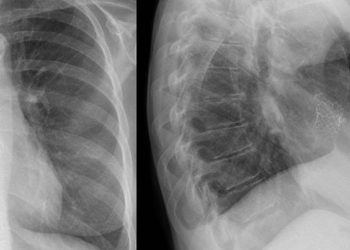Intra-arterial tenecteplase has limited use after successful endovascular recanalisation of acute posterior circulation arterial occlusion
1. In patients with acute ischemic stroke due to acute intracranial occlusions of the posterior circulation, the use of intra-arterial tenecteplase after successful endovascular recanalisation was not associated with a statistically significant reduction in combined disability and mortality at 90 days.
Evidence Rating Level: 1 (Excellent)
Patients with occlusions of the posterior circulation suffering from acute ischemic stroke have higher rates of death or disability compared to patients with occlusions of the anterior circulation. While endovascular thrombectomy is an established management option for patients with basilar artery occlusion, patients who receive successful endovascular thrombectomy still experience low rates of positive outcomes, necessitating the need for advancements in trteatment. This randomized controlled trial therefore sought to investigate the efficacy of administering intra-arterial tenecteplase following successful endovascular recanalisation in patients with acute posterior circulation arterial occlusion. 208 participants (mean[SD] age, 66.0[11.1] years) from 31 centres across China were randomized to receive either intra-arterial tenecteplase or standard care with successful endovascular recanalisation only. The primary outcome was the proportion of patients that were free from disability as defined by a modified Rankin scale score of 0 or 1. Overall, the proportion of patients with a modified Rankin scale score of 0 or 1 at 90 days was not significantly different between the tenecteplase and control groups (34.6% and 26.0%, respectively; adjusted risk ratio 1.36, 95% confidence interval (CI) 0.92 to 2.02; P=0.12). The 90 day mortality was similar between groups (27.9% v 26.9%; adjusted risk ratio 1.13, 95% CI 0.73 to 1.74). This study showed that the use of intra-arterial tenecteplase following successful endovascular recanalisation in patients suffering from acute posterior circulation arterial occlusion was not associated with a statistically significant reduction in disability and mortality at 90 days.
Click to read the study in BMJ
Image: PD
©2025 2 Minute Medicine, Inc. All rights reserved. No works may be reproduced without expressed written consent from 2 Minute Medicine, Inc. Inquire about licensing here. No article should be construed as medical advice and is not intended as such by the authors or by 2 Minute Medicine, Inc.







